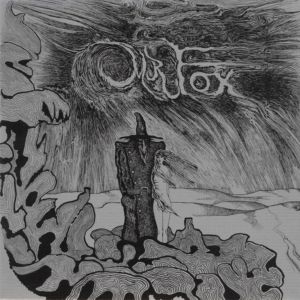
- Format: MP3

Japan 24-Bit Remaster
Mr Fox were an early 1970s electric folk or folk rock band. They were seen as in the ‘second generation’ of electric folk performers and for a time were compared with Steeleye Span and Sandy Denny’s Fotheringay. Unlike Steeleye Span they mainly wrote their own material in a traditional style and developed a distinct ‘northern’ variant of the genre. They demonstrate the impact and diversity of the electric folk movement and the members went on to pursue significant careers within the electric folk and traditional music genres after they disbanded in 1972 having recording two highly regarded albums.
By the late 1960s Bob and Carole Pegg were already well-established singers and musicians on the British folk scene based in Yorkshire. In 1969 they moved south and played London folk clubs, where they met Ashley Hutchings, who had recently left Fairport Convention and was attempting to form a new group involving members of the Irish band Sweeney's Men including Terry Woods. They took part in rehearsals but the embryonic band soon broke up and Hutchings went on to form Steeleye Span with Woods and his wife Gay. The Peggs were approached by record producer Bill Leader. He secured them a contract with Transatlantic Records. For their first album they recruited Alun Eden (drums), Barry Lyons (bass), Andrew Massey (cello) and John Myatt (woodwinds) and adopted the name Mr Fox, the title of one of their songs and a nod towards one of the recurring figures of folk lore.
The group’s first eponymous album released in 1970, was in some ways very similar to the work of Steeleye Span, but, consisted largely of original compositions, mainly by the Peggs, with a Dave Mason tune, ‘Little Woman,’ and the songs ‘Salisbury Plain’ and 'Mr Thrill's Song' with lyrics by Hutchings. The use of classically trained musicians and the wide variety of instruments used (including organ, melodeon, tin whistle, terrapin, fiddle, cello, flute, clarinet) made for very complex arrangements and sounds. It was well received by the music press and was made Melody Maker album of the year.
Massey and Myatt left soon after the first album and the second, Gypsy (1971), as a result, had less complex instrumentation, but more experimentation. A more varied album than the first offering, it was also based around self-penned material, but included two traditional songs 'The House Carpenter' and the finale 'All the Good Times' on which the Gridley Tabernacle Choir and Orchestra guested.
The band had a reputation as an unpredictable live act, sometimes startlingly good and sometimes lack lustre. At the Loughborough Folk Festival in 1971 they were on the same bill as Steeleye Span and, while the latter put in a memorable performance, Mr Fox were on bad form and the band was heavily criticised in the press, an event often seen as a turning point in the band's fortunes. Recordings made by the couple before the group was formed were released as He Came from the Mountain (1971), but by this point the Pegg's marriage was already under strain. In 1972 Edun and Lyons quit to join Trees, and were replaced by guitarist Nick Strutt and Ritchie Bull on bass. When Carole left later that year the band dissolved.
Carole (as Carolanne Pegg) recorded an eponymous solo album in 1973, and briefly joined the band Magus before moving on to become a respected ethnomusicologist. Recordings of songs by Sydney Carter made by the Peggs before the band were formed were released as And Now it is So Early in 1973. Bob Pegg recorded two albums with Nick Strutt: Bob Pegg and Nick Strutt (1973) and The Shipbuilder (1974). He then made a solo album Ancient Maps (1975), before moving on to become an author, oral historian and entering theatre education. The band's two albums were released as a double album set on vinyl in 1975 and on CD in 2004.